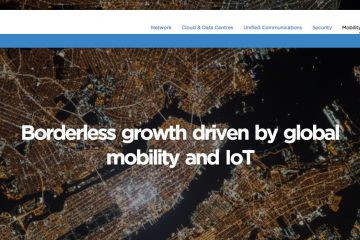IoT industry trend: By 2023, 83% of AI chips worldwide will supply IoT devices
The combination of the Internet of Things industry with artificial intelligence, autonomous driving and 5G technology will have great potential. There is a perception in the industry that as of 2023, 83% of AI chips worldwide will supply IoT devices.
Artificial intelligence, autonomous driving and 5G technology are in the midst of preparations. As an important carrier of these three types of technologies in practical applications, the future development trend of the Internet of Things will be closely related to them.
Some industry insiders believe that in the next 5-10 years, the Internet of Things system will absorb most of the world’s AI chips, and will be widely deployed in the field of driverless and smart cities. At the same time, 5G technology will also be directly invested in the application of Internet of Things. Among them.
At present, the development of the Internet of Things market is still in an immature stage. For some practitioners, the main reason is that the Internet of Things has not been better integrated with the above technologies, and because the Internet of Things cannot separate from the above technologies, this alone exists. The combination is also the future development trend of the future Internet of Things technology.
One of the trends in the Internet of Things: 83% of the supply of AI chips
Internet of Things (IoT) and artificial intelligence (AI) can be said to be complementary areas.
Financial media The Motley Fool mentioned that there is a perception in the industry that by 2023, 83% of the world’s AI chips will be supplied to IoT devices (such as cars, smart speakers, smart watches and agricultural equipment).
In turn, cooperation with the Internet of Things will greatly promote the growth of the artificial intelligence market. By 2030, artificial intelligence is expected to bring an increase of $15.7 trillion to the global economy – just slightly lower than the size of the largest economy.
Without the Internet of Things as a carrier, the application of artificial intelligence will still be limited to boring interactive games; and without artificial intelligence as a “brain” for active thinking, the Internet of Things will simply be “connected for connectivity.”
One of the most important advantages of artificial intelligence is its ability to learn deeply. For the Internet of Things, the role of artificial intelligence is to upgrade the simple connection of devices to smart connections. With the help of artificial intelligence, the massive data collected by billions of devices in the IoT system can be quickly processed and analyzed.
The second trend of the Internet of Things: millions of self-driving cars on the road
Autopilot is an important application of artificial intelligence and the Internet of Things in the automotive industry. At present, the pilot tests of self-driving cars of various companies are in full swing. According to IHS Markit’s estimates, as of 2040, the annual sales of self-driving cars will exceed 33 million.
At this year’s GDU Technology Conference, Jensen Huang, CEO of chip maker NVIDIA, revealed that the company’s cloud-based autopilot car simulation platform NVIDIA Constellation has been widely launched. Recently, some media reported that NVIDIA is working with AVL and TüV SüD Group to develop simulation test kits and standardized procedures for auto-driving vehicle verification.
In addition, Alphabet’s Waymo commercial autonomous car ride has been deployed, and GM’s autonomous driving subsidiary, Cruise, is also planning to deploy additional personnel to help drive unmanned taxis.
The third trend of the Internet of Things: 5G full coverage
Unmanned applications are inseparable from the coverage of 5G networks. The biggest advantage of 5G is its extremely high data transmission rate, which can greatly enhance the experience of the Internet of Things. In the eyes of many technology practitioners, 5G networks are “born for the Internet of Things.”
Li Bin, CEO of Weilai Automobile, once said that in the field of automatic driving, 5G and artificial intelligence are two very important pillars. Among them, 5G is quite beneficial to the Internet of Vehicles system. “It will increase the reliability and experience of autonomous driving by a few. Level”.
The high efficiency of 5G is not only of great significance to the unmanned field, but also important for the construction of smart cities, which will greatly help urban transportation and public utilities.
At present, the world’s major mobile operators have begun to make the final sprint on the 5G deployment.
US company Verizon Communication will be one of the first mobile operators to launch an official 5G network in the US next month, and plans to cover 5G networks in at least 30 cities by the end of this year. The company is expected to invest $17-18 billion this year, most of which is used to build 5G networks.
Another US operator, AT&T, said it plans to deploy 5G to 21 US cities by the end of the year.
Domestically, China Mobile, China Unicom and China Telecom will launch 5G trial commercials this year. It is expected that by 2020, first-tier cities and some second- and third-tier cities will be able to achieve 5G signal coverage.
In other words, with the development of the Internet of Things, the world’s major chip manufacturers, including NVIDIA and Qualcomm, will usher in important opportunities for the rest of the year.

